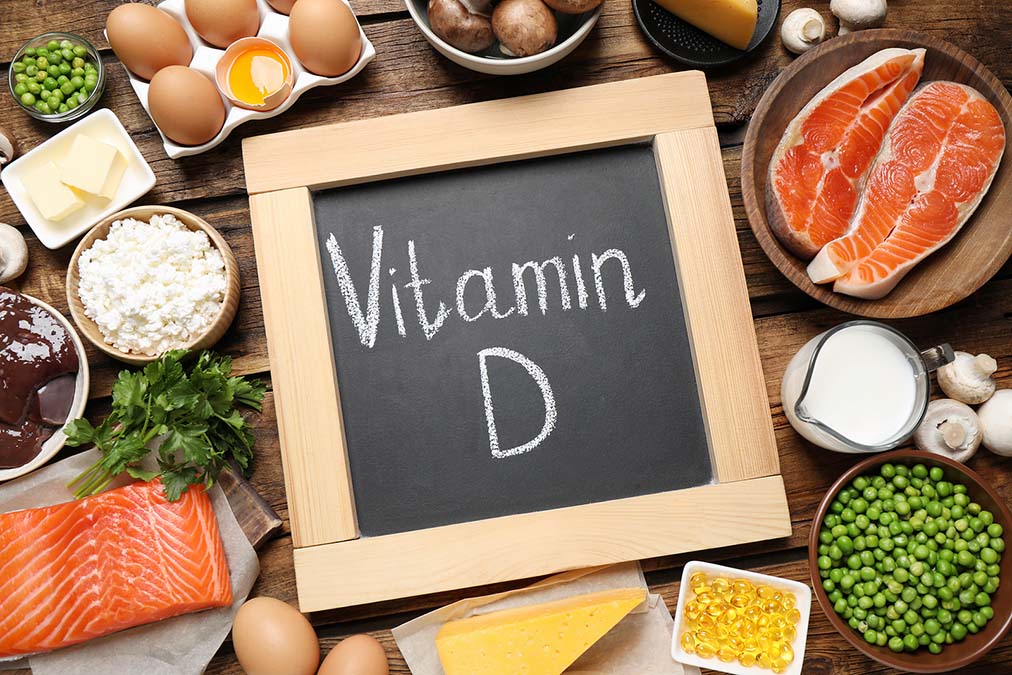 This vitamin has been hailed for its health benefits. Among other things, it may also heal hypothyroidism.
This vitamin has been hailed for its health benefits. Among other things, it may also heal hypothyroidism.
But a new study in the journal BMC Endocrine Disorders recognizes that all previous studies on this vitamin and hypothyroidism were small and unreliable.
So these researchers conducted a big study to put this vitamin to the test.
The answer? It works for some but not for others!
These researchers were particularly interested in the autoimmune version of hypothyroidism, where your thyroid is destroyed by your immune system, which mistakes it for something that might be harmful.
This is a pretty important question, because we often believe that autoimmune disorders are beyond our control.
They used data collected by the National Health and Nutrition Examination Survey between 2007 and 2012. They analyzed data from a subset of 7,943 adults with an average age of 47.
They categorized the subjects’ Vitamin D levels as optimal (30 or more ng/mL), intermediate (20-30 ng/mL), or deficient (less than 20 ng/mL).
Within their subset, 614 of the subjects (7.7%) had autoimmune hypothyroidism.
What did the data tell them?
-
1. 25.6% of those with hypothyroidism were deficient in Vitamin D, while only 20.6% of those without hypothyroidism were.
2. Compared to those with optimal Vitamin D levels, those with intermediate levels were 70% more likely to have hypothyroidism.
3. Compared to those with optimal Vitamin D levels, those with deficient levels were 60% more likely to have hypothyroidism.
This shows that Vitamin D deficiency is definitely a risk factor for autoimmune hypothyroidism.
Based on these findings, the researchers recommend that populations at risk of hypothyroidism should have their Vitamin D levels checked and should be given supplements if necessary.
However, if your Vitamin D levels are not too low, there is no benefit from taking extra Vitamin D supplements.

 Overcoming IBD
Overcoming IBD Multiple Sclerosis
Multiple Sclerosis Banishing Bronchitis
Banishing Bronchitis Gum Disease Gone
Gum Disease Gone Overcoming Onychomycosis
Overcoming Onychomycosis Neuropathy No More
Neuropathy No More The Prostate Protocol
The Prostate Protocol Brain Booster
Brain Booster
 Ironbound
Ironbound
 Solution for Shingles
Solution for Shingles
 The Bone Density Solution
The Bone Density Solution
 The Ultimate Healing Protocol
The Ultimate Healing Protocol
 The Parkinson's Protocol
The Parkinson's Protocol
 The Chronic Kidney Disease Solution
The Chronic Kidney Disease Solution
 Overthrowing Anxiety
Overthrowing Anxiety The Fatty Liver Solution
The Fatty Liver Solution The Hypothyroidism Solution
The Hypothyroidism Solution
 The End of Gout
The End of Gout The Blood Pressure Program
The Blood Pressure Program
 The Oxigized Cholesterol Strategy
The Oxigized Cholesterol Strategy
 Stop Snoring And Sleep Apnea Program
Stop Snoring And Sleep Apnea Program
 The Arthritis Strategy
The Arthritis Strategy The Vertigo & Dizziness Program
The Vertigo & Dizziness Program The 3-Step Diabetes Strategy
The 3-Step Diabetes Strategy Hemorrhoids Healing Protocol
Hemorrhoids Healing Protocol The Erectile Dysfunction Master
The Erectile Dysfunction Master Weight Loss Breeze
Weight Loss Breeze The IBS Program
The IBS Program The Insomnia Program
The Insomnia Program The Migraine and Headache Program
The Migraine and Headache Program The Neck Pain Solution
The Neck Pain Solution The Menopause Solution
The Menopause Solution The Ejaculation Master
The Ejaculation Master The TMJ Solution
The TMJ Solution The Acid Reflux Solution
The Acid Reflux Solution The Fibromyalgia Solution
The Fibromyalgia Solution The Psoriasis Strategy
The Psoriasis Strategy